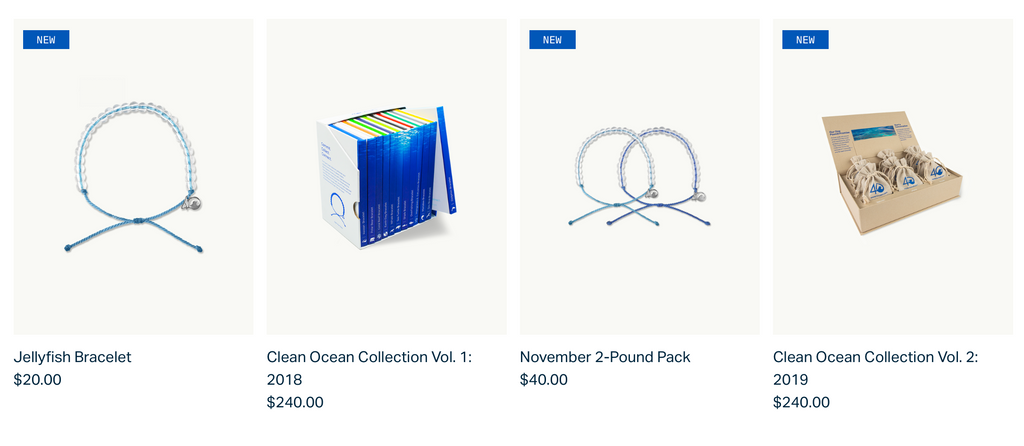Every year, millions and millions of seahorses are harvested from places like Vietnam, Thailand, Australia, and Indonesia only to be dried and shipped to Hong Kong for use in traditional Chinese medicine. Thousands of square miles of seahorse habitat are destroyed every year by the harmful fishing practice of bottom trawling. And seahorses are being pushed from their nearshore habits by the careless waste disposal practices of humans in many places around the globe.
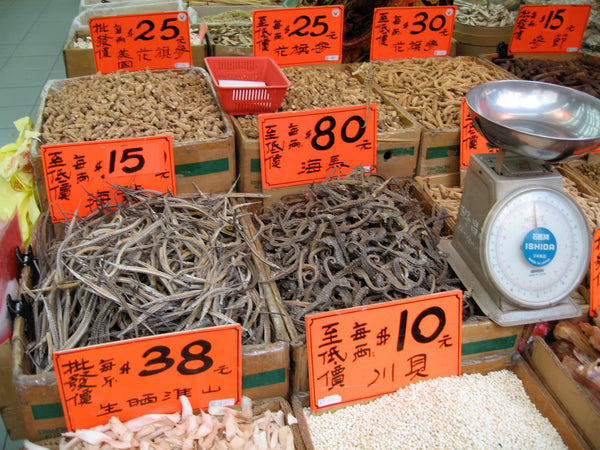 Photo by Amanda Vincent/Project Seahorse: Dried pipefish and seahorses in a Hong Kong market
Photo by Amanda Vincent/Project Seahorse: Dried pipefish and seahorses in a Hong Kong market
Luckily, there are organizations like our non-profit partner, Project Seahorse, who are out there making sure that seahorses continue to have a place in our oceans for generations to come. As the leading organization in the world advocating for the protection of seahorses, their work is critical to understanding the current and future situation for these amazing creatures.
Founded in 1996 by Dr. Amanda Vincent and Dr. Heather Koldewey, Project Seahorse aims to secure a world where marine ecosystems are healthy and well-managed. Their focus on saving seahorses, securing the world's shallow seas, and training conservationists to continue this important work is what they're all about.
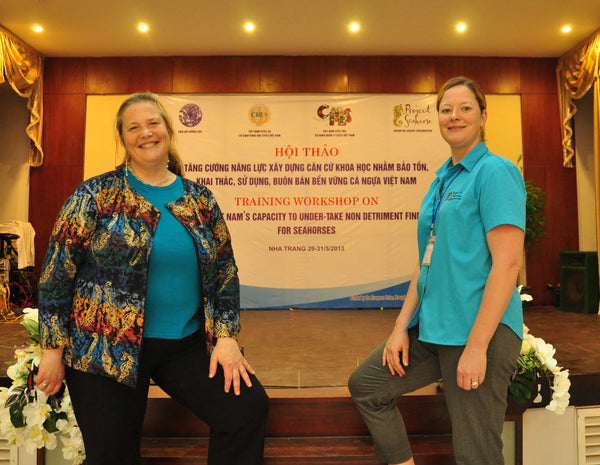 Photo Project Seahorse: Project Seahorse at CITES conference 2013
Photo Project Seahorse: Project Seahorse at CITES conference 2013
Project Seahorse begins with cutting-edge research in places like Portugal, China, USA, Thailand, and the Philippines which has all contributed to a body of work that is then turned into highly effective conservation action. They don't just do science for the sake of science; the science has to end in meaningful results for seahorses.
Their focus on citizen science, marine protected areas, sustainable fisheries, trade & policy, and conversation education are all helping to move the needle forward for seahorses around the world. Their unique way of looking at how marine organisms and humans interact gives them specific insight into the interdependencies between the two. Concentric pressures of different levels of interactions create an "onion world" model in which each layer affects the others. This is a unique way of looking at the problems facing seahorses and it yields a holistic view of the complex nature of marine conservation.
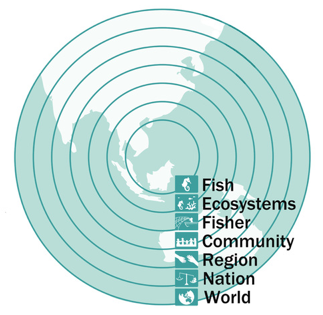
Graphic from ProjectSeahorse.com: This shows the "onion world" model of how each layer affects the others
For being a relatively small organization, Project Seahorse has achieved some incredible things when it comes to seahorse conservation. These are just a few of their most notable accomplishments:
- First to study seahorses underwater in the wild
- Discovered that many species of seahorse have long-term monogamous relationships
- Uncovered the global seahorse fisheries and trade
- Worked through CITES to generate the first global ban of seahorses exports
- Established 35 locally managed marine protected areas in the Philippines
- Produced over 200 primary papers, reports, and policy briefings to advance seahorse conservation
Here are a few pictures of Project Seahorse in action!
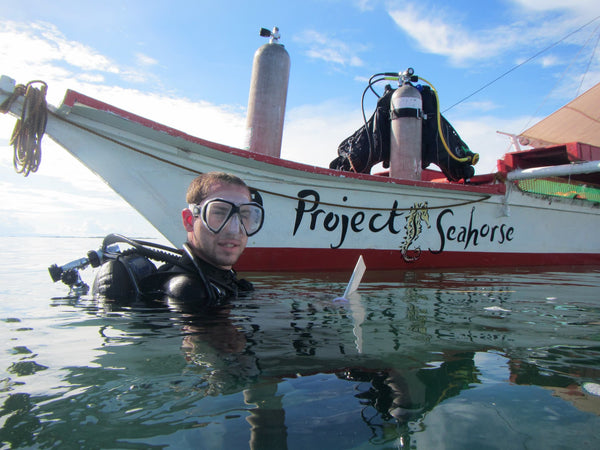 Photo, K. Gillespie/Project Seahorse: Executing underwater science on seahorses in the Philippines
Photo, K. Gillespie/Project Seahorse: Executing underwater science on seahorses in the Philippines
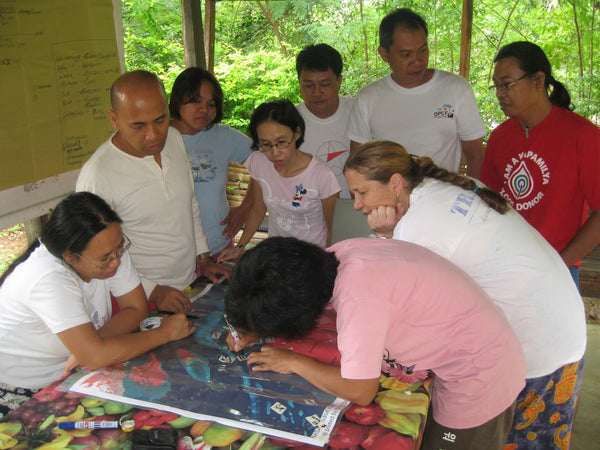 Photo, A. Vincent/Project Seahorse: Working with local communities to protect seahorses is a big part of what they do
Photo, A. Vincent/Project Seahorse: Working with local communities to protect seahorses is a big part of what they do
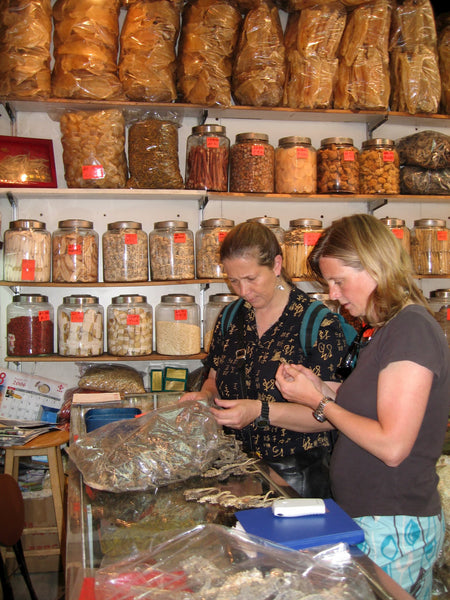
Photo, A. Vincent/Project Seahorse: Keeping an eye on the global seahorse trade in Hong Kong
We're incredibly proud to partner with such a great organization doing amazing work around the globe for the protection and conservation of seahorses.
When you purchase a 4ocean Seahorse Bracelet you not only pull a pound of trash from the ocean and coastlines in places like Bali, Indonesia, where seahorse habitat is threatened, you also make it possible for us to support organizations like Project Seahorse –– so that there will be more of this...
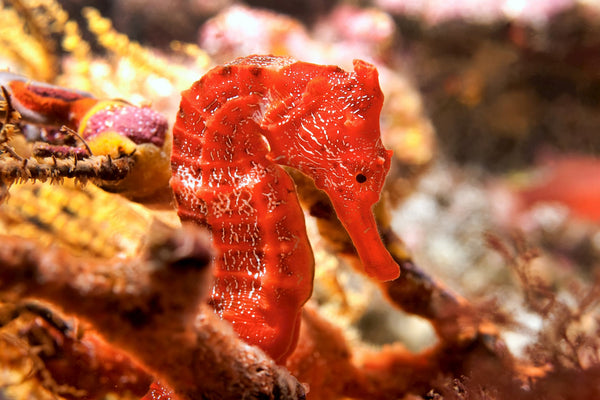
And less of this...
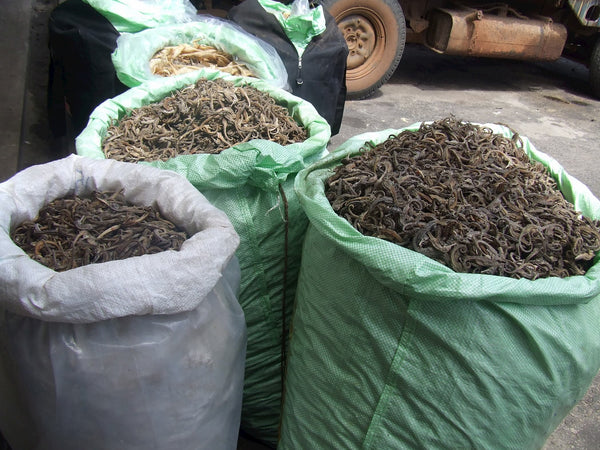 Photo, S. Gunasekera/Project Seahorse: Keeping an eye on the global seahorse trade in Sri Lanka
Photo, S. Gunasekera/Project Seahorse: Keeping an eye on the global seahorse trade in Sri Lanka
If you want more information on how to become a citizen scientist with Project Seahorse or how to get involved, just click here. You can also donate directly to Project Seahorse here.
Have you ever seen a seahorse in the wild? What do you love most about seahorses? Let us know in the comments below.
Follow us on YouTube, Facebook, Instagram, and Twitter to stay up to date on all things 4ocean! Then head on over to our Discover 4ocean Facebook Group to get in on the conversation around ocean plastic pollution and other important ocean conservation topics.


 Photo by Amanda Vincent/Project Seahorse: Dried pipefish and seahorses in a Hong Kong market
Photo by Amanda Vincent/Project Seahorse: Dried pipefish and seahorses in a Hong Kong market
 Photo Project Seahorse: Project Seahorse at CITES conference 2013
Photo Project Seahorse: Project Seahorse at CITES conference 2013
 Photo, K. Gillespie/Project Seahorse: Executing underwater science on seahorses in the Philippines
Photo, K. Gillespie/Project Seahorse: Executing underwater science on seahorses in the Philippines
 Photo, A. Vincent/Project Seahorse: Working with local communities to protect seahorses is a big part of what they do
Photo, A. Vincent/Project Seahorse: Working with local communities to protect seahorses is a big part of what they do
 Photo, S. Gunasekera/Project Seahorse: Keeping an eye on the global seahorse trade in Sri Lanka
Photo, S. Gunasekera/Project Seahorse: Keeping an eye on the global seahorse trade in Sri Lanka 